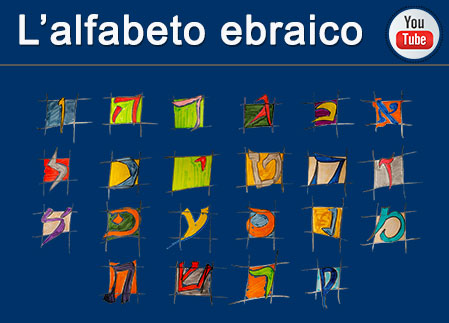The Synod of the Protestant Church of the Rheinland
Germania 1981
Thou bearest not the root, but the root thee. Romans 11:18b.1. In agreement with the "Message to the Congregations concerning the Dialogue between Christians and Jews" from the provincial Synod of the Protestant Church in the Rheinland (12 January 1978), the provincial Synod accepts the historical necessity of attaining a new relationship of the church to the Jewish people.
2. The church is brought to this by four factors:
(1) The recognition of Christian co-responsibility and guilt for the Holocaust — the defamation, persecution and murder of Jews in the Third Reich.
(2) The new biblical insights concerning the continuing significance of the Jewish people for salvation history (e.g., Romans 9-11), which have been attained in connection with the Church struggle.
(3) The insight that the continuing existence of the Jewish people, its return to the Land of Promise, and also the creation of the State of Israel, are signs of the faithfulness of God toward His people. (Cf. the study "Christians and Jews" III, 3).
(4) The readiness of Jews, in spite of the Holocaust, to (engage in) encounter, common study and cooperation.
3. The provincial Synod welcomes the study "Christians and Jews" from the Council of the Protestant Church in Germany (E.K.D.) and the more comprehensive and precise "Theses on the Renewal of the Relationship of Christians and Jews" of the Committee "Christians and Jews" of the Protestant Church of the Rheinland.
The provincial Synod receives both thankfully and recommends to all congregations that the Study and the Theses be made the starting point of an intensive work on Judaism and the foundation of a new consciousness of the relationship of the church to the Jewish people.
4. In consequence the provincial Synod declares:
(1) Stricken, we confess the co-responsibility and guilt of German Christendom for the Holocaust (cf. Thesis D.
(2) We confess thankfully the 'Scriptures" of the Jewish people (Lk. 24: 27; I Cor, 15: 3f), our Old Testament, to be the common foundation for the faith and work of Jews and Christians (cf. Thesis II).
(3) We confess Jesus Christ the Jew, who as the Messiah of the Jews is the Saviour of the world and binds the peoples of the world to the people of God (cf. Thesis III).
(4) We believe in the permanent election of the Jewish people as the people of God and realize that through Jesus Christ the church is taken into the covenant of God with His people (cf. Thesis IV).
(5) We believe with the Jews that the unity of righteousness and love characterizes the saving work of God in history. We believe with the Jews that righteousness and love are the admonitions of God for our whole life. As Christians we see both rooted and grounded in the work of God with the Jewish people and in the work of God through Jesus Christ (cf. Thesis V),
(6) We believe that in their calling Jews and Christians are always witnesses of God in the presence of the world and before each other. Therefore, we are convinced that the church may not express its witness toward the Jewish people as it does its mission to the peoples of the world (cf. Thesis VI).
(7) Therefore, we declare:
Throughout centuries the word "new" has been used against the Jewish people in biblical exegesis: the new covenant was understood as contrast to the old covenant, the new people of God as replacement of the old people of God. This obliviousness to the permanent election of the Jewish people and its relegation to non-existence marked Christian theology, church preaching and church work ever and again right to the present day. Thereby we have also made ourselves guilty of the physical elimination of the Jewish people.
Therefore, we want to perceive the unbreakable connection of the New Testament with the Old Testament in a new way, and learn to understand the relationship of the "old" and "new" from the standpoint of the promise: as a result of the promise, as fulfilment of the promise, as confirmation of the promise. "New" means therefore no replacement of the "old". Hence we deny that the people Israel has been rejected by God or that it has been superseded by the church.
(8) As we are turning around we begin to discover what Christians and Jews both give witness to:
We both confess God as the creator of heaven and earth, and know that we are singled out in the ordinary life of the world by the same God by means of the blessing of Aaron.
We confess the common hope in a new heaven and a new earth and the power of this messianic hope for the witness and work of Christians and Jews for justice and peace in the world.
5. The provincial Synod recommends to the district synods the calling of a special officer of the Synod for Christian-Jewish dialogue.
The provincial Synod commissions the church leadership to constitute anew a committee 'Christians and Jews" and to invite Jews to work with this committee. It is to advise the church leadership in all questions concerning the relationship of the church and Jewry and to assist the congregations and church circles toward a deeper understanding of the new standpoint in the relationship of Jews and Christians.
The provincial Synod makes the church leadership responsible to consider in what form the Protestant Church of the Rheinland can undertake a special responsibility for the Christian settlement Nes Ammim in Israel, as other churches (e.g., in the Netherlands and in the German Federal Republic) have already done.
The provincial Synod makes the church leadership responsible to see to it that in church instructions, continuing education and advanced education the matter of "Christians and Jews" shall be appropriately paid attention to.
The provincial Synod considers it desirable that a regular teaching post with the thematic "Theology, Philosophy and History of Jewry" shall be established in the Wuppertal seminary and the Wuppertal general college, and requests the church leadership to consult with the Wuppertal seminary, the Wuppertal general college, and with the state of Nordrhein-Westfalen to this end.
4 visualizzazioni.
Inserito 01/01/1970
Relazioni Ebraico-Cristiane
Ultime novità nel sito
- 19/04/2020: Articolo - L’enigma della Maddalena
- 23/02/2020: Articolo - Il locus amoenus nelle catacombe ebraiche e cristiane di Roma
- 16/02/2020: Articolo - Il profetismo nel Vicino Oriente antico
- 13/02/2020: Articolo - I Profeti della Cappella Sistina
- 09/02/2020: Articolo - Gerusalemme e la Terra Santa di Israele


